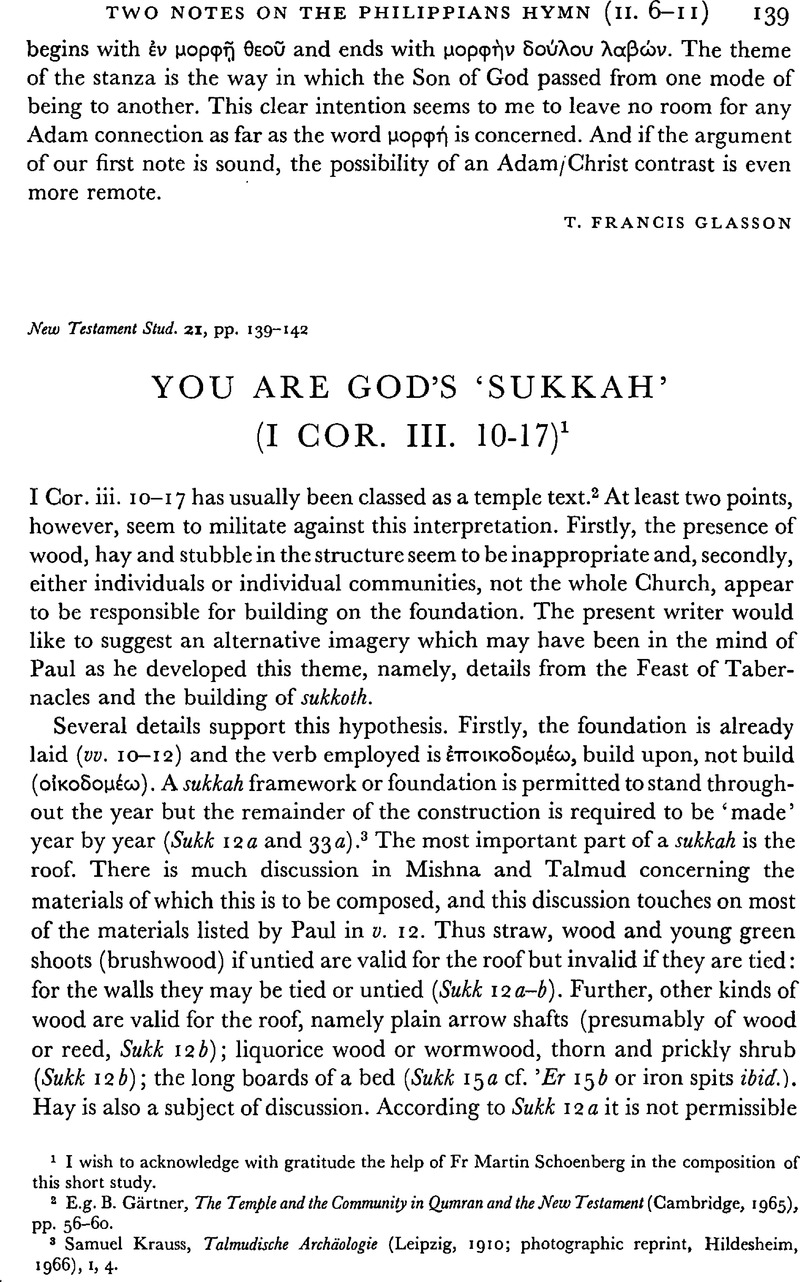Article contents
You are God's ‘Sukkah’ (I Cor. III. 10-17)1
Published online by Cambridge University Press: 05 February 2009
Abstract

- Type
- Short Studies
- Information
- Copyright
- Copyright © Cambridge University Press 1974
References
2 E.g. Gärtner, B., The Temple and the Community in Qumran and the New Testament (Cambridge, 1965), pp. 56–60.CrossRefGoogle Scholar
3 Krauss, Samuel, Talmudische Archäologie (Leipzig, 1910; photographic reprint, Hildesheim, 1966), 1, 4.Google Scholar
1 Liddell, H. G. and Scott, R., Greek–English Lexicon (reprint, Oxford, 1953).Google Scholar
2 None of these articles may be used until the last day of the Feast.
3 The partition of the sukkah is compared to the veil (Sukk 7 b), see also note 7 ad loc.
4 Krauss op. cit. p. 5.
5 A convert to Judaism about A.D. 30.
6 However, the LXX and Josephus uses σκηνοπηγ⋯α when referring to the Feast of Tabernacles (Ant. IV. 209, cf. III. 247).
1 T.W.N.T. IV, 278 and Strack–Billerbeck 11, 434.
2 Krauss op. cit. p. 11.
3 But I have been unable to find any talmudic references which discuss the prevention of fire with regard to sukkoth.
4 Riesenfeld, H., Jésus Transfiguré (Copenhagen, 1947), pp. 278 f.Google Scholar
5 The classical prophets and Qumran spoke of the eschatological return to the desert.
6 Sukkoth are built not only for the private homes but also for the synagogues.
7 E.g. it must be secure so that it is not blown away by the wind ('Er 3a).
- 2
- Cited by




